As more developers get their hands on a Steam Deck devkit, we're seeing plenty more show their games and now Capcom has taken a turn with Devil May Cry 5.
Unlike a lot of what we've seen previously via small clips or plain pictures on Twitter, Capcom went a tiny step further by making a video on their official Capcom USA YouTube Channel - that's quite a bit of extra advertisement power there for the Steam Deck.
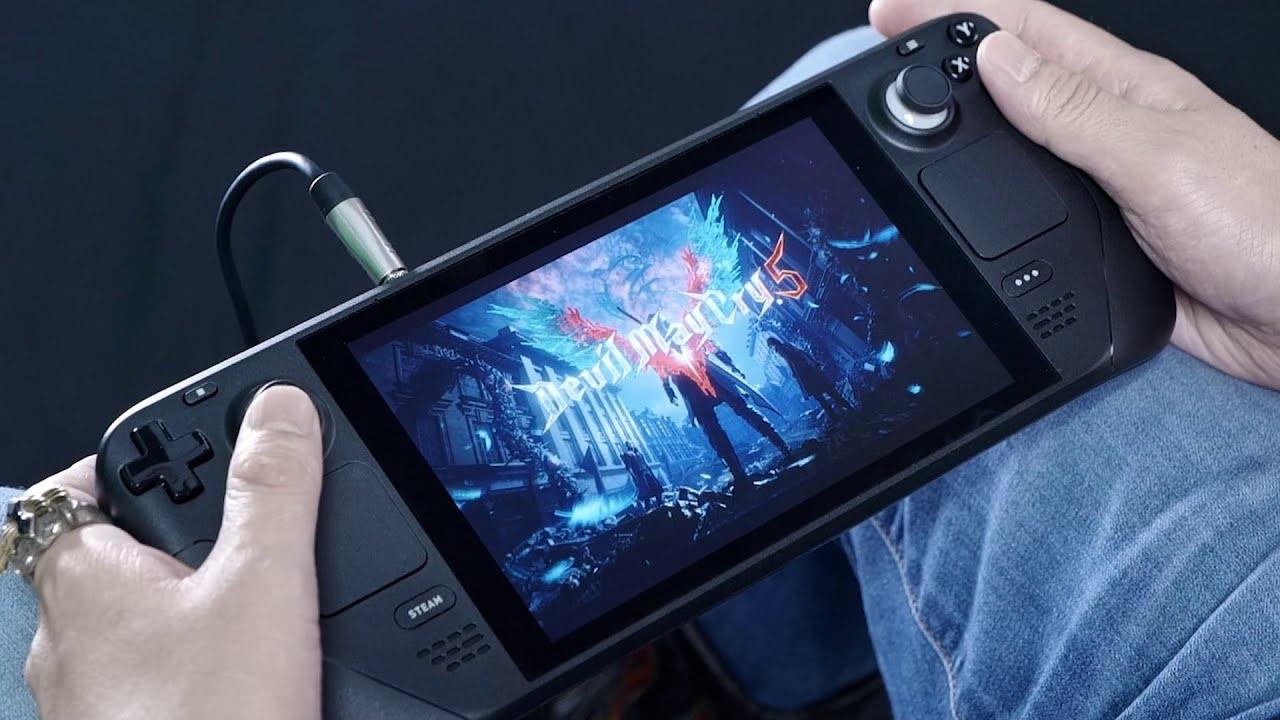
Direct Link
The video description notes the gameplay is being presented by the Lead Game Designer.
That looks like it runs very nicely too, very smooth action. Not totally unexpected though, since Devil May Cry 5 has worked well with Steam Play Proton for quite a while now. Since the Steam Deck resolution is only 1280 x 800px, most games should hopefully scale down quite well for it.
In case you missed it: Proton 6.3-8 was recently released. With more games working, DLSS for DirectX 11 and 12, CEG DRM support and more.
What I was more referring to was that the Deck won't replace anyone already using a laptop, or a desktop, and so it becomes viewed as another device alongside existing electronics - like the Switch, or PSP. Certainly very interesting from a geek toy perspective, but I don't see it driving GNU/Linux adoption on the desktop unless people actually start to use it day to day in desktop mode (which phones offered, but nobody took up).
Yeah I see your point. One effect (additional to the overall improvements to the Linux stack as you already mentioned) might be this: Playing with the Deck people might get interested in Linux and they even like it. At the same time some popular laptop vendors are offering Linux as the default OS installation on their to be sold unit. May be the Deck might help to get some people to go for a preinstalled Linux on their next model.
Not sure if this is far fetched, but I'm certain this is a long game and no single action will change things from one day to another.
Last edited by jens on 27 Nov 2021 at 9:40 am UTC
After all, nobody's got the consumer Steam Deck in their hands yet. And there is a good chance that there's so much demand that Valve cannot fabricate enough consoles anyway. Hell, it's been difficult to meet demand even for niche stuff like the Aya Neo.
It's not GNU/Linux desktop, and they aren't going to magically make native games available.as they say, when the service is free, you are the product.
why do you think companies in linux break backward compatibility all the time?
to force companies to pay for techinical support.
i hate to say that, but i think canonical and others are selling US.
want to reach those millions of ubuntu users? want to make sure that your app wont break in our next update? then pay us, because, you know, it would be a shame if anything break, right?
sorry if it sounds like conspiration theory, it is.
Yes it both sounds like and is a conspiracy theory because that is not how reality works. There are no companies that create apps from which the likes of Canonical can blackmail money from. Nor are enterprises paying Red Hat for support due to their systems breaking left and right.
Now I want to give the counter-point: what if this has more impact on Linux users than anything else, at the end of the day?
After all, nobody's got the consumer Steam Deck in their hands yet. And there is a good chance that there's so much demand that Valve cannot fabricate enough consoles anyway. Hell, it's been difficult to meet demand even for niche stuff like the Aya Neo.
Well it should, if it works on the Deck it will work on your Linux. That is the difference with Stadia where the port could be (and was) locked away internally.
we complained a lot about not being 100% an native portMost of the complaints I saw about the Witcher 2 port were because it was released before it was anywhere near ready. It was more or less broken in many ways and performed like crap. There was lots of talk about VP's wrapper tech being the reason, but you wouldn't have seen a fraction of the backlash if the release wasn't so badly botched. You see exactly the same kind of response when a bad or broken console port is released on Windows.
Personally I was fine with the port and enjoyed the game after they fixed the most glaring problems, quite a while after release. The tech doesn't really matter that much to me as long as the release is properly supported on Linux. Emphasis on "support". I still don't really buy games that don't officially support Linux.
sorry if it sounds like conspiration theory, it is.It definitely is a conspiracy theory with very little technical understanding to back it up.
i always thought that free software was made by people for people, and companies had an symbiotic relationship with us.Some companies understand the long-term benefits and work with Linux and the community, but most take what they can and give nothing or very little back. It's naïve to expect anything else, when most business decisions are made by people who have very little interest or expertise in the technology or anything beyond short term profit.
its harder and harder to believe that narrative, mint broke compatibility with snapes claiming that they were an proprietary form of distribution or that canonical was the only repo or something, but then, why they support steam?They didn't break anything. You can just install snapd and go nuts, but Mint decided that flatpak was the more universal solution and better for their users, and went with that as the default instead. I don't think any distribution officially supports both out of the box.
we may demonize an proprietary codecs because they arent open source or compatible with open source, they are evil , etc.Lots of demons?
we may demonize drm and anti cheat.
we may demonize everything for the sake of freedom, but at the end of the day, what we end up with?
Most of the complaints I saw about the Witcher 2 port were because it was released before it was anywhere near readyok, fair enough, it was so long ago that i forgot what was the main issue, or never knew, the polemic surrounding Virtual programing was so big that the true problem was burried, at least in my "news feed".
Some companies understand the long-term benefits and work with Linux and the community, but most take what they can and give nothing or very little back. It's naïve to expect anything else, when most business decisions are made by people who have very little interest or expertise in the technology or anything beyond short term profit.so canonical fit in what definition? i think they shoot thenselves in the foot by trying to make their own display server, desktop enviroment etc all at the same time.
then snaps...
They didn't break anything. You can just install snapd and go nuts, but Mint decided that flatpak was the more universal solution and better for their users, and went with that as the default instead. I don't think any distribution officially supports both out of the box.if all distributions pick and chose what universal packages they will support, then those packages arent universal at all, we solve nothing by add'ing then, that is the issue.
Lots of demons?[redacted]
It definitely is a conspiracy theory with very little technical understanding to back it up.Probably, but i still cant understand why the web has an great backward compatibility (for good or for bad, regardless of consequences) and we break things so often in linux.
it helps nothing that i tried to develop myself and canonical ditched the apis they were creating (it was PWA before PWA was a thing and with more integration, i can understand why they ditched it, but it still was frustrating.
honestly as both an end user and developer, things breaking on updates pissed me of a lot, it improved a lot since i stop using non LTS ( for years no one told me that i should stay on LTS) and started keeping note on the apps that i install to better troubleshoot any problem (eg: if i install A,B,C it cause problem but if i stop at B it dont)
i would quote a few times things broke but i cant remember now, brian lunduke would give better examples than i can (im awake since yesterday)
its just frustrating to think that, we had some native games in the past, that no longer works, and we have to install the windows version of then.
if we didnt had windows? we were screwed.
now... i didnt wanted to say "companies definitely did this on purpose" because i know it sounds ridiculous
but if there is an cost of keeping backward compatibility, and an economic incentive in breaking, what is the most logical thing to do?
let quote some examples....
openSSL was not secure, big companies sundely realized that one critical piece of their infra structure (and used by many smaller companies too) was not properly funded...
then an fork was created, because of course it was, why fund the original project if you can fund an fork of it instead?
PoP!OS is creating their own desktop enviroment, they said gnome developers code like monkey or something akin to that...
so, why not fund gnome foundation and ask then to hire better developers?
well, because they can just create their own solution instead, paying developers at cost of production instead of cost of production+profit for the managers, and if anyone use their solution, they might be the ones geting paid for customization/improvments instead of paying someone else.
sigh.
i think Pop is going to do the same mistakes that canonical did, meanwhile there are so many things they could make beyond an Desktop Enviroment...
if they want to be an distro for content creators, why not create something like substance painter before substance painter was a thing?
Last edited by elmapul on 27 Nov 2021 at 11:52 am UTC
For native Linux to take off, the number of gamers on Linux needs to go up first.
Still waiting for the wave of EAC support to happen from devs like SCUM/DUST etc..
Edit2: Specialized? Please define... To me, it's still Arch Linux, with the same drivers and KDE desktop. Certainly it will have a minimal set of software pre-installed... I would have used the term "barebone". Which might be less scary for newcomers.Wait... Is that browser Google Chrome?!
Looks like a standard KDE desktop to me...
EDIT: It looks like I can’t quote a picture...
https://www.gamingonlinux.com/2021/11/capcom-shows-off-official-video-of-devil-may-cry-5-steam-deck/comment_id=214993
Last edited by mr-victory on 27 Nov 2021 at 4:02 pm UTC
Wait... Is that browser Google Chrome?!Why is that surprising? It has officially supported Linux for more than a decade.
Probably, but i still cant understand why the web has an great backward compatibility (for good or for bad, regardless of consequences) and we break things so often in linux.On the other hand this is also the reasons why browsers are bloated messes with extremely hard to maintain code full of security problems.
That said I do agree with you and have argued for years that e.g library writers should take much more care about maintaining ABI and API stability, a new incompatible interface should only be introduced if it really really is necessary and when done it should also be added GLIBC style where keep the old functions in a versioned way so that you don't break ABI compatibility with old applications.
But the main answer is that software is still a young technology that is fast moving forward.
it helps nothing that i tried to develop myself and canonical ditched the apis they were creating (it was PWA before PWA was a thing and with more integration, i can understand why they ditched it, but it still was frustrating.
honestly as both an end user and developer, things breaking on updates pissed me of a lot, it improved a lot since i stop using non LTS ( for years no one told me that i should stay on LTS) and started keeping note on the apps that i install to better troubleshoot any problem (eg: if i install A,B,C it cause problem but if i stop at B it dont)
i would quote a few times things broke but i cant remember now, brian lunduke would give better examples than i can (im awake since yesterday)
Being an insomniac I do feel your pain. Yes it's not easy to know unless some one informs you that the echo system is separated into stable LTS distros that maintain API/ABI and behaviour for 5-10 years and the unstable ones where things constantly change.
its just frustrating to think that, we had some native games in the past, that no longer works, and we have to install the windows version of then.Actually those old games should be fully possible to resurrect, the reason some of them don't work on a newer system is that things like SDL have changed too much but one can gather the old versions of all the dependencies for those old games and LD_PRELOAD them in or put it all into a container. There might be some exotic old libraries that straight out refuses to work on a new system but even then it's fully possible to fork them and massage them enough to work, requires that some one steps up to do the work, but it's doable.
if we didnt had windows? we were screwed.
now... i didnt wanted to say "companies definitely did this on purpose" because i know it sounds ridiculousThere is a huge cost in maintaining backwards compatibility indefinitely since you have to orphan every single library and application for that to work. Just upgrading to the newest versions of libs and apps when you are about to release a new version of your distro is basically free in that regard so the economic incentive is not in the breaking, but in the "less amount of work that you put on your own shoulders".
but if there is an cost of keeping backward compatibility, and an economic incentive in breaking, what is the most logical thing to do?
let quote some examples....The fork done by the FreeBSD team (libressl) was done because the FreeBSD devs wanted more control over such a central piece of software that had gotten stale. Due note that the funding that happened due to this went to OpenSSL and not to LibreSSL and while LibreSSL was the better library for a short while, the OpenSSL project got rejuvenated in the process and LibreSSL is now basically only used by FreeBSD and the distros and projects that went with LibreSSL are close to all back to using OpenSSL again.
openSSL was not secure, big companies sundely realized that one critical piece of their infra structure (and used by many smaller companies too) was not properly funded...
then an fork was created, because of course it was, why fund the original project if you can fund an fork of it instead?
PoP!OS is creating their own desktop enviroment, they said gnome developers code like monkey or something akin to that...
so, why not fund gnome foundation and ask then to hire better developers?
well, because they can just create their own solution instead, paying developers at cost of production instead of cost of production+profit for the managers, and if anyone use their solution, they might be the ones geting paid for customization/improvments instead of paying someone else.
sigh.
i think Pop is going to do the same mistakes that canonical did, meanwhile there are so many things they could make beyond an Desktop Enviroment...
if they want to be an distro for content creators, why not create something like substance painter before substance painter was a thing?
There is of course no real problem with the code of Gnome and the talk about monkeys are just hyperbole from frustrated people. The main reason that Pop!_OS want's to create their own DE is both the "how hard can it be" fallacy that so many devs fall into until they realise that the answer almost always are "quite hard" and the fact that Pop wants to have more control over how the DE looks, operates and works. The clash between Gnome and Pop is that Gnome have refused to implement several changes that Pop have asked for, now I'm in no position to say if either side (or both) are in the right/wrong but since the clash is over the direction, no amount of funding from Pop to Gnome would change anything here so that is not an option (had Gnome been propietary and the money from Pop would have been good then funding as a form of bribery would perhaps work, bit it often doesn't in Open Source projects due to devs work on them for the love of the project and not as a means to get rich [often but not always of course]).
What I was more referring to was that the Deck won't replace anyone already using a laptop, or a desktopReplace? No. Runnning alongside. Sure. Remember that the initial batch is for users who already have a valid Steam account, thus already have a gaming rig? 95% of the market is running Windows. Some of them might be tempted to use Linux (SteamOS) if the Steam Deck experience is great.
... but I don't see it driving GNU/Linux adoption...Remember that there is already an uptick in Linux usage since Valve announced the Steam Deck? Look at the latest Steam hardware survey and the Steam Deck is not even released, yet.
Last edited by Mohandevir on 27 Nov 2021 at 11:58 pm UTC
You are comparing ARM hardware with x86... There is absolutely no hardware interrelations between them. Same for Stadia, there are no interrelations with the desktop; you can't run stadia on any hardware. Steam, on the other hand... SteamOS is Steam Linux both on x86 platform. Proton works on both too... Same underlying tech... The link cannot be clearer.
except that Stadia IS x86
Except you can't run Stadia or Stadia games locally, on any hardware. The hardware platform is not relevant, in this particular case. Sorry if it wasn't clear enough.
Except you can't run Stadia or Stadia games locally, on any hardware. The hardware platform is not relevant, in this particular case. Sorry if it wasn't clear enough.no you are not clear at all.
you tried to justify that android didnt helped the linux desktop because android is (mostly) arm devices...
but then you quoted stadia as if it was in the same category as android, and its not...
How will this not change anything on the desktop? Will it bring more users to use Desktop Linux? Probably not. Will it bring more games that are playable on Desktop Linux? 100% it will, as it's using the exact same software on the Deck. That's where Stadia was garbage, it's all hidden on Google's servers, never to be seen by us 'normies'.to Capcom this isn't GNU/Linux, this is something closer to Just Another Console(tm).
And that's more than fine for the time being. Every journey begins with a first step, does it not? At this point all we really want and all we can really ask for is that games can run in an easy and competitive (performance-wise) manner on Linux, so that PC users aren't forced to use Windows if they want to also play games; and the Steam Deck's success will facilitate that. If and when this success becomes a reality, then we can start asking for more.
Sames arguments were made for Stadia too.
The Deck might differ if people are convinced to use the desktop mode, but phones have had exactly that and it's changed nothing. There's just no incentive that I can see.
Purely guesswork on all our parts of course, but I'm going with it won't change anything on the desktop.
Google in general seem to be very good at making use of Linux in ways that you would think would be good for Linux more generally, but managing to avoid letting that happen. I don't know if they have some reason to want to do that or if it's just by accident, but so far they've been pretty consistent about it.How will this not change anything on the desktop? Will it bring more users to use Desktop Linux? Probably not. Will it bring more games that are playable on Desktop Linux? 100% it will, as it's using the exact same software on the Deck. That's where Stadia was garbage, it's all hidden on Google's servers, never to be seen by us 'normies'.to Capcom this isn't GNU/Linux, this is something closer to Just Another Console(tm).
And that's more than fine for the time being. Every journey begins with a first step, does it not? At this point all we really want and all we can really ask for is that games can run in an easy and competitive (performance-wise) manner on Linux, so that PC users aren't forced to use Windows if they want to also play games; and the Steam Deck's success will facilitate that. If and when this success becomes a reality, then we can start asking for more.
Sames arguments were made for Stadia too.
The Deck might differ if people are convinced to use the desktop mode, but phones have had exactly that and it's changed nothing. There's just no incentive that I can see.
Purely guesswork on all our parts of course, but I'm going with it won't change anything on the desktop.
Google in general seem to be very good at making use of Linux in ways that you would think would be good for Linux more generally, but managing to avoid letting that happen. I don't know if they have some reason to want to do that or if it's just by accident, but so far they've been pretty consistent about it.
speaking of it i have 2 things to comment.
1)valve and google are in different positions, valve business model was treated by microsoft, so they invested in linux in order to survive, for then it makes no difference if you gonna play on windows, mac or linux as long as you purchase games on steam and the games that you purchase dont stop working on OS updates.
microsoft could try to use tatics like "stuff that you purchase on windows store will work forever, stuff that you purchased elsewhere may break on windows update"
or no guarantee for either, but at least the games you purchase on their store are cross buying meaning that you still can play on xbox...
or things like that, they can try to induce people to use their store, so valve invested in linux in order to secure their independence, and they need linux to be an strong OS to give users an alternative for windows, no matter who make the operating system, if it gonna be thenselves or others, if one of the other linux vendors break stuff, then the users can simply migrate to another distro unlike what happens on windows.
that is why valve is creating an symbiotic relationship with us.
google on the other hand is kinda "too big to fail", but they did bet in independence in the past, they did an partnership with mozilla for the same reasons, they didnt wanted microsoft to control the browser market that would affect then back in the days their only product was google search, now that they have chrome , android youtube etc they arent so dependent on mozilla to help then survice, especially considering that the days of full proprietary browsers and internet explorer dominance in general are gone.
and why google dont make decisions that benefit both their products (android, chromeOS, Stadia) and linux in general? well
2)did you guys remember that Nintendo strugled to get support from thirdy parties some times?
for example in the n64 era, gamecube era, WiiU era they didnt had support from thridy parties!
they always did fine on protables, but sony was the one struggling...
now think about this for a moment: what is stoping other companies from relasing an machine running linux?
if nintendo relased their own "nintendo deck" or something, they would skip the strugle of getting thirdy party support thanks to things like proton, while they (maybe?) still could have an proprietary store front as the only way to acess games in their hardware.
the same goes for sony.
i dont know if they can do that without voiding gpl, but i think they can, and if they can, what valve is doing, may not help only thenselves but their competitors too! but there isnt any guarantee that their competitors will return the favor, nintendo wont allow steam on their console nor port nintendo games to generic steamOS/linux , sony and nintendo still can create apis that better integrate with their own hardware and try to convince developers who want squeeze maximum performance on their hardwares to use then instead of something like directx over proton or vulkan (im not talking about complete ports, but porting the code that is nescessary to port in order to reach an good framerate)
i dont think google will do anything that help their competitors too much , unlike valve who depend on our help to survive and grow this market, google is big enough to try to enter the gaming market with their own money, without much help from volunteers in an "winner takes it all" model.
speaking of nintendo, sony and maybe even others relasing linux consoles, it wont be their first time!
nes mini and snes mini, playstation classic, sega game gear micro, some sega arcades, the new atari vcs, intelvision amiico and a lot of micro consoles (consoles from smaller companies are based on linux.
its Strange to see that valve was kinda right, linux is the future...
i dont think google will do anything that help their competitors too much , unlike valve who depend on our help to survive and grow this market, google is big enough to try to enter the gaming market with their own money, without much help from volunteers in an "winner takes it all" model.In theory, anyhow. In practice they might try, but they're too cheap to back their play hard enough to win.
But yeah, they could still imagine doing it and treat people as competitors even though in the real world they will never seriously compete with them . . .
Last edited by Purple Library Guy on 28 Nov 2021 at 7:02 am UTC
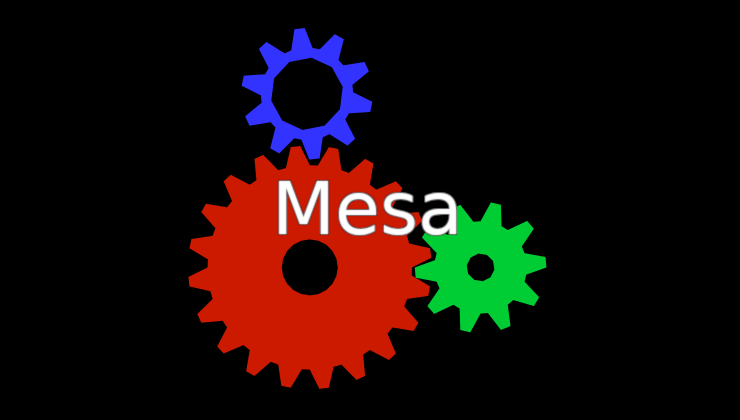
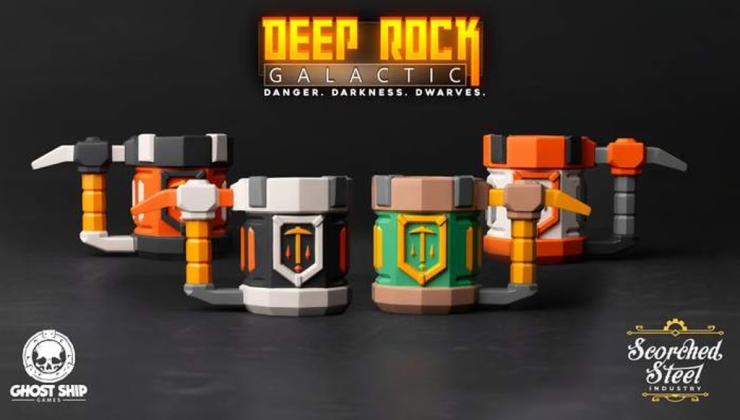
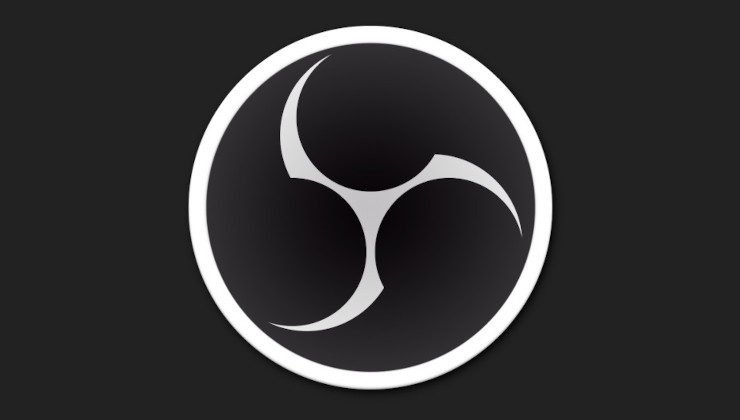
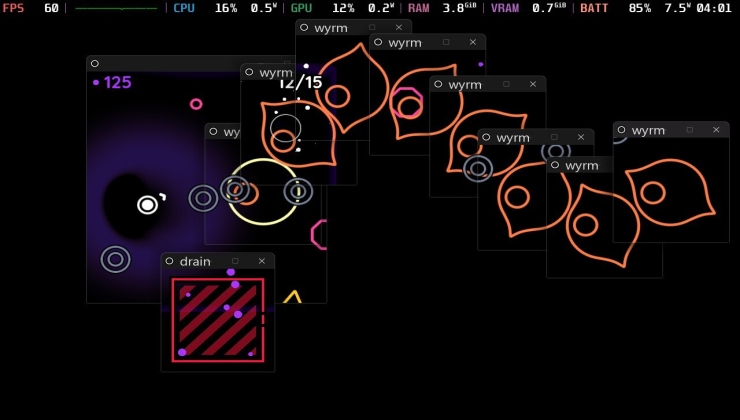









 How to set, change and reset your SteamOS / Steam Deck desktop sudo password
How to set, change and reset your SteamOS / Steam Deck desktop sudo password How to set up Decky Loader on Steam Deck / SteamOS for easy plugins
How to set up Decky Loader on Steam Deck / SteamOS for easy plugins
See more from me